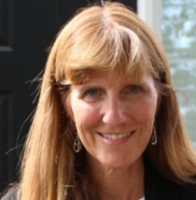Author Interviews, Psychological Science / 27.07.2019
Can We Learn From Advice We Would Give Our Younger Selves?
MedicalResearch.com Interview with:
Robin Kowalski, Ph.D.
Centennial Professor, Clemson University
Department of Psychology
Clemson University
Clemson, SC 29634
MedicalResearch.com: What is the background for this study? What are the main findings?
Response: These two studies stemmed from an idea that I had been mulling over for a couple of years. We are so quick to offer advice to others and to seek advice from others, but what about the advice we would offer to ourselves, particularly our younger selves.
As it turns out, we have plenty of advice to offer to our younger selves. There wasn’t a single participant in our research who found it impossible to generate advice for their younger self and a third of participants spontaneously think about this advice at least once a week. Although the advice that people offered their younger self fell into a number of different categories, the three most common were relationships (e.g., don’t let her go), education (e.g., finish school), and the self (e.g., you are worthy). Following the advice was important.
Approximately two-thirds of respondents said they followed the advice they offered their younger self. Those who did thought their younger self would view them most positively now than those who did not follow the advice.
People also said following the advice brought them closer to their ideal selves (the person they ideally wanted to be). The advice that people offered was more often than not tied to a pivotal event that had occurred in their life. Some of these pivotal events were negative and some were positive. Not surprisingly, regret was more often tied to negative than positive pivotal events, and this regret was just as often tied to actions (things people had done) as inactions (things they had not done).
(more…)

